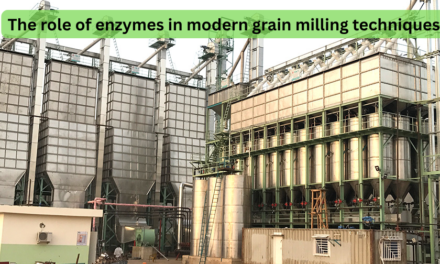Electric-powered agricultural tools offer numerous advantages over traditional fuel-powered tools, particularly in terms of efficiency, sustainability, cost-effectiveness, and ease of operation. These benefits make them increasingly popular for modern farming practices, especially as the agricultural industry shifts toward environmentally friendly and technologically advanced solutions. Here are the key advantages:
1. Environmental Sustainability
- Advantages:
- Zero Emissions: Electric tools produce no greenhouse gas emissions during operation, reducing the carbon footprint of farming activities.
- Energy Efficiency: Electric motors are more energy-efficient than internal combustion engines, minimizing energy wastage.
- Renewable Energy Integration: Can be powered by renewable energy sources, such as solar or wind, further enhancing sustainability.
- Example: Electric tractors powered by solar panels significantly reduce reliance on fossil fuels.
2. Cost Savings
- Advantages:
- Lower Operating Costs: Electricity is often cheaper than diesel or gasoline, reducing the overall cost of operation.
- Reduced Maintenance: Electric motors have fewer moving parts than combustion engines, resulting in lower maintenance costs and longer lifespans.
- Example: An electric chainsaw requires less maintenance than a gas-powered one, as it doesn’t need oil changes, fuel filters, or spark plugs.
3. Quiet Operation
- Advantages:
- Reduced Noise Pollution: Electric tools operate more quietly than fuel-powered ones, improving working conditions and reducing noise-related stress for operators and nearby animals.
- Compliance with Noise Regulations: Useful in areas where noise levels are regulated, such as urban farms or near residential areas.
- Example: Electric lawnmowers are ideal for urban farming or areas close to residential neighborhoods due to their low noise levels.
4. Ease of Use
- Advantages:
- Simple Operation: Electric tools often have push-button start mechanisms, eliminating the need for pull-starts and making them user-friendly.
- Lightweight Design: Electric motors are generally lighter, reducing operator fatigue and improving maneuverability.
- Instant Torque: Provides consistent and immediate power, improving performance for tasks requiring precision.
- Example: Electric hedge trimmers are easier to handle and more efficient for precision work compared to gas-powered models.
5. Improved Efficiency
- Advantages:
- Consistent Power Delivery: Electric tools deliver consistent power without fluctuations caused by fuel or engine inefficiencies.
- Precision Control: Many electric tools have variable speed settings, allowing precise adjustments for specific tasks.
- Example: Electric sprayers can be programmed to apply pesticides or fertilizers with exact flow rates, reducing waste.
6. Reduced Environmental Contamination
- Advantages:
- No Fuel Spills: Eliminates the risk of fuel leaks or spills, which can harm soil and water quality.
- Clean Energy Usage: Supports organic and sustainable farming practices by reducing environmental contamination risks.
- Example: Electric water pumps for irrigation prevent oil or fuel contamination in irrigation systems.
7. Versatility and Compatibility
- Advantages:
- Compatibility with Modern Technology: Electric tools can be integrated with IoT devices, automation systems, and smart controls for precision farming.
- Modular Systems: Many electric tools use standardized batteries or components, making it easy to switch batteries between tools.
- Example: A single battery pack can power multiple tools, such as electric drills, pruners, and chainsaws, reducing equipment costs.
8. Scalability for Small and Large Farms
- Advantages:
- Scalable for Diverse Applications: Electric tools range from small hand-held devices for backyard gardening to large electric tractors for commercial farms.
- Ideal for Indoor and Vertical Farming: Electric tools generate less heat and noise, making them suitable for controlled environments.
- Example: Electric forklifts in indoor greenhouses improve operational efficiency while maintaining air quality.
9. Compliance with Regulations
- Advantages:
- Meets Emission Standards: Helps farmers comply with strict environmental regulations and avoid penalties associated with using diesel or gas-powered machinery.
- Qualifies for Incentives: Farmers may benefit from government subsidies or tax incentives for adopting electric-powered tools.
- Example: Many countries offer grants or tax deductions for farms adopting electric irrigation systems or tractors.
10. Enhanced Safety
- Advantages:
- Lower Risk of Fires: Electric tools eliminate the risks associated with fuel storage, spills, and combustion.
- Reduced Vibration and Exhaust Fumes: Creates a healthier working environment for operators.
- Example: Electric pruning shears reduce operator fatigue and eliminate harmful emissions during prolonged use in orchards.
11. Long-Term Reliability
- Advantages:
- Durable and Reliable: Electric motors have fewer components prone to wear and tear, resulting in longer operational lifespans.
- Weather-Resistant Options: Many electric tools are designed to function effectively in wet or damp conditions, unlike combustion engines.
- Example: Electric irrigation pumps are more reliable during rainy seasons, as they don’t depend on combustion efficiency.
12. Technological Advancements
- Advantages:
- Integration with Automation: Electric tools are compatible with autonomous and semi-autonomous systems, such as drones or robotic harvesters.
- Programmability: Smart electric tools can be pre-programmed for specific tasks, reducing human intervention.
- Example: Electric-powered robotic weeders precisely identify and remove weeds without damaging crops.
13. Support for Sustainable Farming Practices
- Advantages:
- Reduces Carbon Footprint: Aligns with global efforts to achieve sustainable agriculture and combat climate change.
- Promotes Regenerative Agriculture: Electric tools facilitate low-impact farming practices, such as no-till farming or precision irrigation.
- Example: Electric tractors with GPS and VRT optimize resource use and minimize soil disturbance.
Conclusion
Electric-powered agricultural tools provide numerous advantages, including environmental sustainability, cost efficiency, ease of use, and compatibility with modern farming technologies. They are particularly well-suited for small and medium-scale farms, indoor farming, and operations that prioritize sustainability and precision. As the agriculture industry moves toward greener practices, electric tools are becoming essential for the future of farming.
Hashtags
#SustainableAgriculture #RenewableEnergyFarming #EfficientFarmingTools #InnovativeAgriTech #EcoFarming #GreenTechnology #ElectricFarmEquipment #SmartAgriSolutions #SustainableFarmingRevolution #EcoFriendlyMachinery #ModernFarmTools #FutureOfAgriculture #CleanFarming #PrecisionFarmingTools #ElectricAgriRevolution #SustainableFarmingTech #EcoAgriTools #GreenFarmingRevolution #ElectricFarmRevolution #SmartFarmingInnovation









